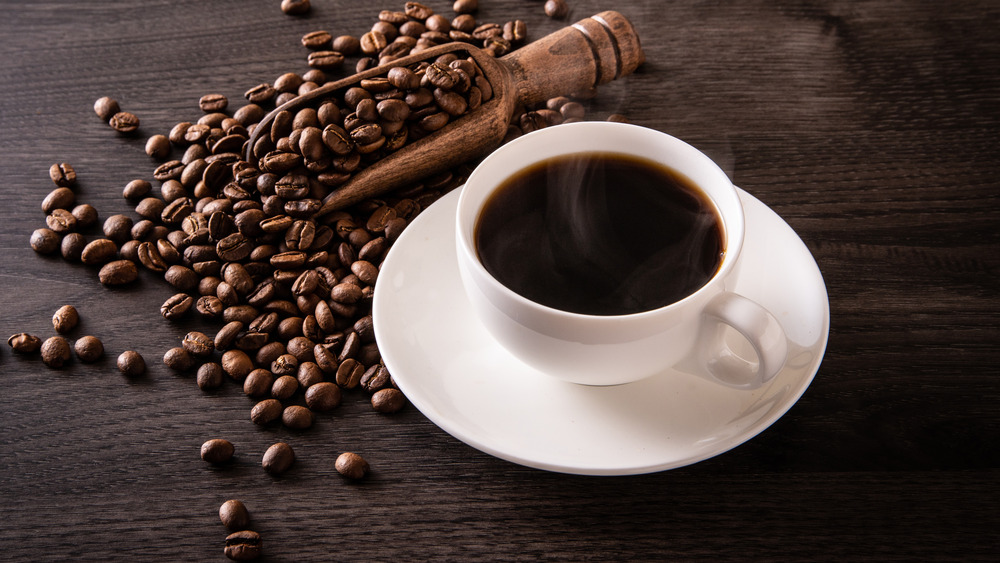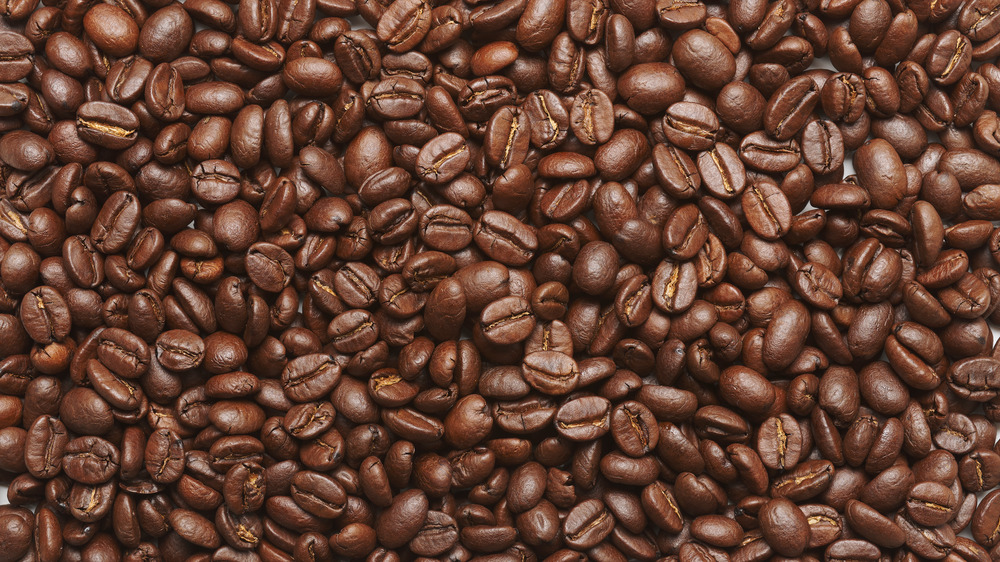The Reason You Should Avoid Freshly Roasted Coffee
If you're anything like us, you start every single morning with a cup (or two or three) of steaming hot coffee. And because this ritual is such an important part of your day, you probably know a thing or two about how to buy the tastiest beans — or do you?
If you've been heading to the grocery store or local roaster laser-focused on the traditional wisdom that freshly roasted beans taste best, rummaging through bags of beans to find the most recent roast date, you might actually be missing out on some of the lovely flavors that develop in coffee in the days after roasting and packaging. Although, overall, fresh is definitely best — you certainly want to buy beans that have been roasted in the past few weeks, according to Clive Coffee – there's actually some benefit to brewing up a cuppa joe that has had some time to rest and fully develop its chemical structure. Let's take a look at why.
It's all about the CO2
If you've ever seen or smelled a green coffee bean and then compared it to a roasted one, you know that there's a world of difference between the two. According to Clive Coffee, the fiery heat of roasting — usually between 370 and 540 degrees Fahrenheit, per Roasty Coffee — breaks down the beans' sugars and amino acids, opening up the flavor and allowing those toasty tastes that we all love to come through in a brewed cup. But this process also creates a buildup of carbon dioxide in the beans, and this chemical reaction can throw off the flavor balance in your mug of joe. For this reason, it's best to let the beans degas for a bit before brewing them (via Clive Coffee).
"When someone is buying whole beans, I always recommend not to brew up the coffee too soon after the roast date," Esther Shaw, roaster and co-founder of Coptic Light Coffee, tells Sprudge. "Let it rest minimally for a few days, ideally a week."
Have you purchased coffee that comes in those fancy bags with a one-way air valve? Well, now you know what it's for: to allow that carbon dioxide to escape the bag without letting in oxygen, which would accelerate the coffee's staling process (via Sprudge). That brings us to another question: Does coffee really go bad?
Coffee loses its flavor over time
Although coffee never really expires, it certainly won't taste as good further out from its roast date. As the days and weeks go by and your coffee — whether it's stored in the fridge or freezer, in a paper bag or even in those one-way valve bags — gets exposed to oxygen, the beans will lose both flavor and dimension, according to Sprudge.
To help determine coffee's window of freshness after roasting, Danish roaster Coffee Collective did a series of experiments to help establish its "best by" date guidelines (via Sprudge). They found the sweet spot to be between a week and three months after roasting, according to co-owner Klaus Thomsen. "After three months you are starting to lose quite a lot of freshness of flavor," he tells Sprudge.
So basically, brewing the perfectly aged cup of coffee means walking the fine line between letting that carbon dioxide off in the early days after roasting but also not waiting too long to a point where oxygen exposure begins to have its own negative effects on your beans. For dark-roasted coffees, this sweet spot occurs within a few days post-roast; for lighter roasts, it falls within five to ten days after roasting (via Clive Coffee). Whatever your coffee preference is, definitely look for beans sold in those one-way valve bags: They're much more effective than waxed paper bags at keeping things fresh (via Sprudge).
So now you know: Good things come to those who wait ... a few days. Happy sipping!


